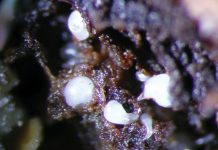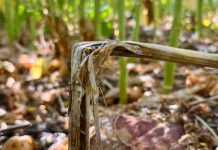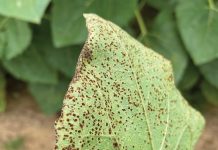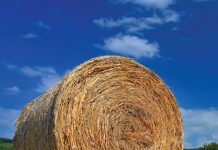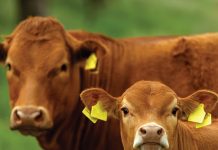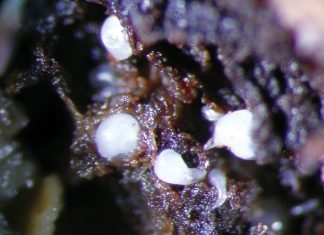
SA Graan/Grain contributor
Unlawful seed practices pose a significant risk and concern to the agricultural sector. In recent years, there has been an increase in illegal seed practices locally and internationally.
These include counterfeit seeds (unauthorised reproductions), fake seeds (low-quality products, fraudulent/ misleading labelling), intellectual property infringements, regulatory offences, trademark infringements, plant breeders’ rights infringements and theft of proprietary material. These practices not only harm the economic interests of seed companies and producers, but also pose risks to the rest of the value chain, including to consumers.
Plant improvement and breeding have been part of human history for thousands of years. The first producers selected the best wild species in nature and grew them year after year. In the process they selected the best-performing crops and plants to produce seed for the next season. Through the years crops also adapted naturally to changes in climate, and to deal with stresses, diseases, and other pests.
The natural evolutionary process, however, takes a long time and humankind started with selections and breeding programmes in order to keep up with the demand for food. By combining the best characteristics of two or three plant parental lines, new and improved varieties with increased yields, specific quality/taste attributes and better disease tolerance were being developed.
‘Today we benefit from the efforts of many involved in plant breeding over thousands of years. It is testimony to the dedication and hard work of many individuals in the field of agriculture and botany. In its celebration of its 100-year anniversary recently, the International Seed Federation (ISF) focused on the success of a century of plant breeding innovation and the impact these improvements had on the global society,’ says Dr Lukeshni Chetty, general manager of the South African National Seed Organisation (SANSOR).
Plant breeding and improvement form a continuous process that aims to produce an improved variety. New varieties or cultivars should provide better yields, improved adaptability, disease tolerance, and better quality. In the process there are many factors that are considered, including prolificacy, vigour, standability, colour, texture, storability, and many more depending on the crop.
‘Plant breeding drives constant improvement using and generating genetic diversity and selecting for the most useful characteristics. Plant breeding has been steadily advancing, transforming agricultural production, and providing societies with a range and volume of nutritious food not previously available,’ Dr Chetty explains.
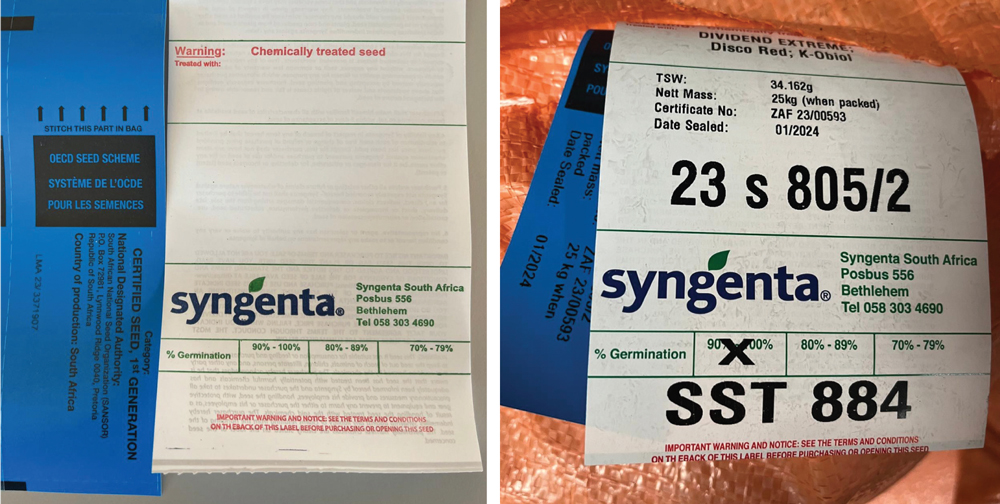
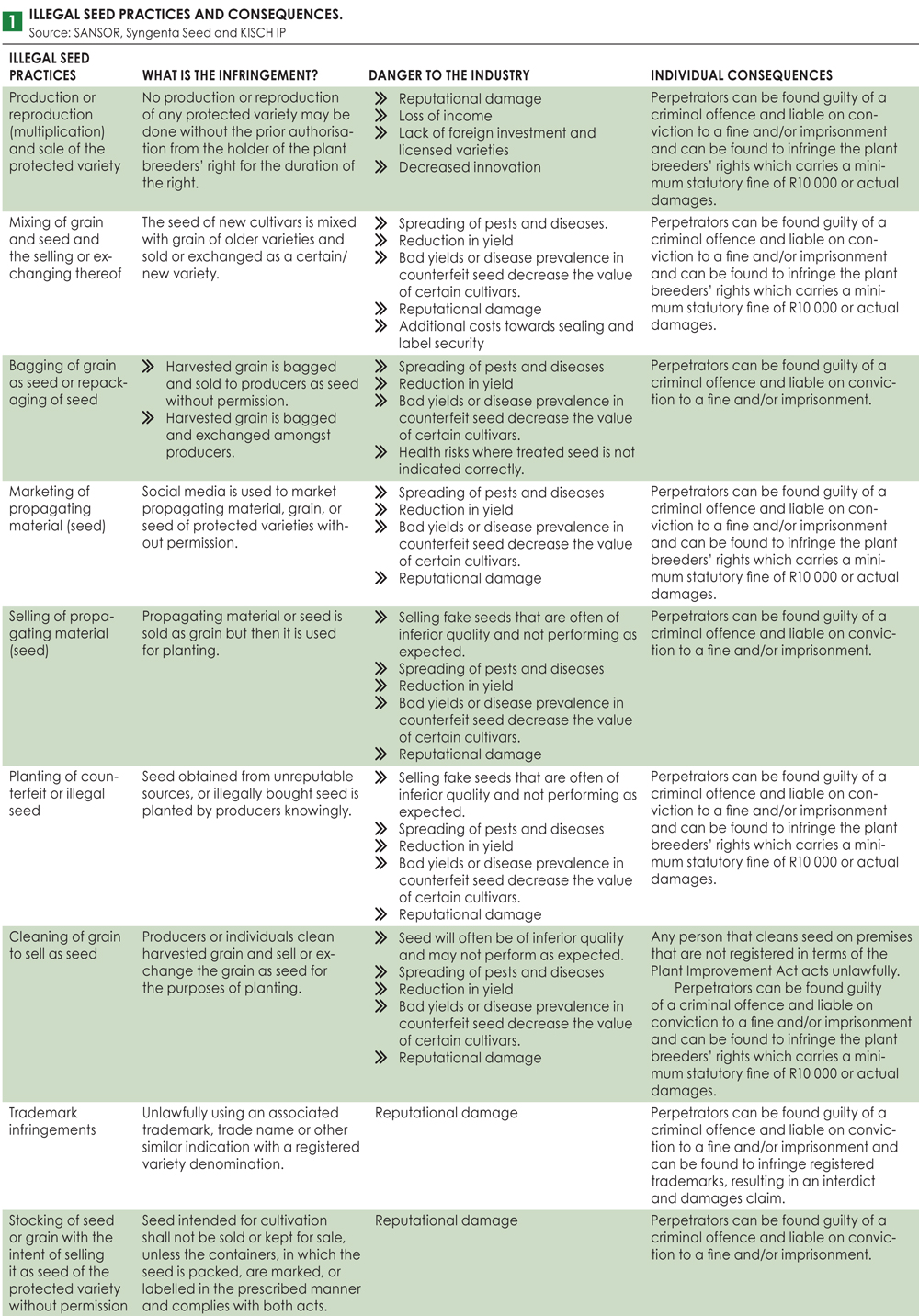 Acts and regulations
Acts and regulations
According to At van Rooy, patent attorney and chair of the board of KISCH IP, a number of acts and regulations in South Africa regulate various aspects regarding the importation, propagation, stocking, denomination, and sale of seed and plants and propagating material. These include the Plant Breeders’ Rights Act, the Plant Improvement Act, the Genetically Modified Organisms Act, the Agricultural Pests Act, and the Biodiversity Act.
Furthermore, he points out that South Africa is a signatory to the International Union for the Protection of New Varieties of Plants (UPOV) which provides guidelines on the protection of plant breeders’ rights globally.
However, from time to time it happens that producers – unknowingly and in some cases even knowingly – commit transgressions with regard to the above-mentioned acts.
Van Rooy warns that the consequences of contravention of the Plant Breeders’ Rights Act or the Plant Improvement Act and regulations should not be taken lightly. ‘In terms of the provisions of these statutes, dealing with the breeding, importation, propagation, stocking, denomination and sale of seed and plants and propagating material, any person who conducts an unregistered business, or who unlawfully sells propagating material, is in contravention of the law and can be found to be guilty of a criminal offence and liable on conviction to a fine and/or imprisonment.’
In South Africa producers are allowed to keep back seed from their own crop to plant on their property. Corné Louw, head: Applied Economics and Member Services at Grain SA, points out that this enables some producers to plant in the following season, which would normally not be the case given their difficult financial position. Louw warns, however, that the selling of farm-saved seed without the permission of the germplasm owner is illegal. ‘When producers exchange seed or sell seed to other producers it creates a wave of negative consequences such as the spread of diseases. It is important that producers assure themselves of what is legal and allowed and which actions are illegal.’
According to Dr Chetty, there has been an increase in illegal seed practices in recent years, including counterfeit seeds, fake seeds, fraudulent labelling, intellectual property infringements, regulatory offences, trademark infringements and theft of proprietary material. ‘This is a huge concern to the seed industry not only in South Africa, but globally.’
She adds that a historic agreement was signed by the ISF and other organisations at the ISF World Seed Congress 2024 recently: ‘The memorandum of understanding aims to increase awareness and implement legal seed and plant practices globally and to promote innovation in the agricultural and horticultural sectors.’
According to Kobus van Huyssteen, technical manager at SANSOR, producers should avoid the following unlawful practices in order to stay on the right side of the law:
- Buying, storing, advertising, selling, or planting counterfeit or infringing seed.
- Engaging in the fraudulent or misleading marking or labelling of counterfeit or infringing seed or grain.
- Infringing on plant breeders’ rights by reproducing, selling, or deriving any form of income from protected varieties without permission from the owner/holder of the right.
- Selling unapproved or misbranded seed.
- Using a company’s registered trademark or variety name without authorisation.
- Being in possession of plant material that is proprietary or confidential.
- Mixing of harvested grain with bought seed.
- Repackaging of seed in unlabelled bags.
- Advertising seed on social media or other platforms without a valid DALRRD registration certificate and number.
- Claiming that seed has been certified when the seed has not gone through the official certification process and a certificate has not been issued by SANSOR to serve as proof.
- Offering seed for sale ‘to plant as feed’. The Plant Breeders’ Rights Act and Plant Improvement Act still apply on any seed that is to be propagated.
- Selling mixtures containing species declared in the Plant Improvement Act.
- Reselling bought seed, as the responsibility for any claims will now be against the reseller.
- Selling a variety that is listed in Table 8 (varieties that require compulsory certification) of the Plant Improvement Act without proof (label, seal, and certificate) of certification.
‘It is also important that producers are aware of the unforeseen or unintended consequences of selling or planting illegal seed. Pests and diseases can be spread as the seed escaped plant health inspections, seed health testing and general quality assurance procedures. The potential economic consequences for producers can be dire as some plant diseases or insects can massively reduce yield. It is also possible to establish new pests in certain areas,’ Van Huyssteen warns.
He adds that producers must always ensure that they purchase seed from reputable sources to support the integrity of the seed industry and safeguard food production and security.
Fast facts
- Plant breeding and improvement are a continuous, but expensive process aiming to produce an improved variety.
- A number of acts and regulations in South Africa regulate various aspects regarding the importation, propagation, stocking, denomination and sale of seed and plants and propagating material.
- Illegal seed practices can cause pests and diseases to spread to the detriment of the entire seed industry.
Click on the link https://sagrainmag.co.za/2024/06/10/acts-and-regulations-governing-the-seed-industry-in-south-africa/ to read more about the acts and regulations governing the seed industry in South Africa.



